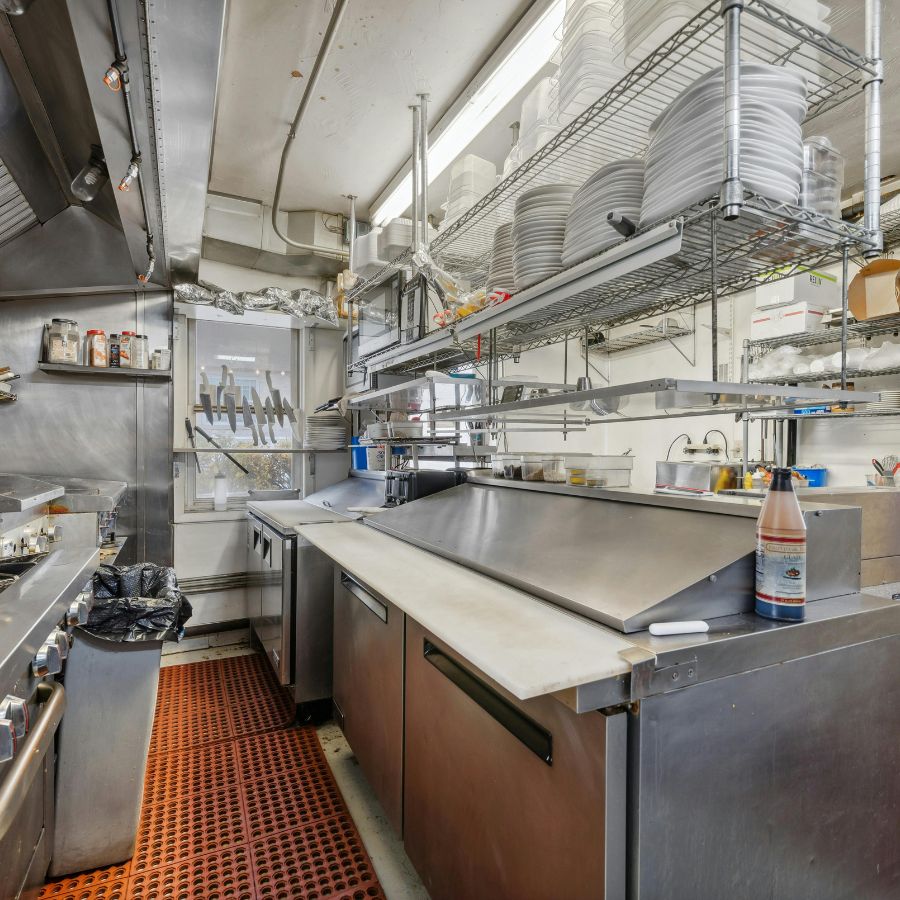In the ever-expanding world of culinary entrepreneurship, the need for a well-equipped, reliable commercial kitchen has never been greater. Whether you’re a caterer, food truck owner, meal-prep service, or cloud kitchen operator, the space you choose to cook in directly impacts the quality, efficiency, and success of your business. With so many options available, knowing what to look for when hiring a commercial kitchen is essential.
This comprehensive guide will walk you through all the key factors to consider when renting a commercial kitchen, from licenses and equipment to location and community support.
Understanding Your Needs First
What Kind of Food Business Are You Running?
Before you begin your search, clearly define the type of food operation you manage. Are you a caterer serving large events? A small-scale baker producing artisan goods? Or perhaps a food truck operator needing prep space? Your specific business model determines the type of kitchen that will suit you best.
Defining Production Volume and Schedule
Knowing how often you need the kitchen—and at what times—will help you determine whether you need a full-time lease or an hourly rental. High-volume production may require exclusive access, while smaller operations can thrive in shared-use kitchens.
Do You Need a Shared or Private Kitchen?
-
Shared kitchens are cost-effective, offering access to space and equipment with scheduled times.
-
Private kitchens give you total control and flexibility but come at a higher price.
-
Hybrid models offer semi-private options with dedicated storage or workstations.
Licensing, Permits, and Compliance
Health Department Certification
The kitchen you choose must be certified by local health authorities. Ask for proof of up-to-date inspections and licenses. This ensures your food is produced in a legally compliant environment.
Insurance and Liability Coverage
Determine what insurance the kitchen provides and what you need to carry. Common types include:
-
General liability insurance
-
Product liability coverage
-
Worker’s compensation (if you have employees)
Your Legal Responsibility as a Kitchen Hirer
Review rental agreements carefully. Understand who is responsible for equipment damage, cleanliness, and compliance with food safety standards. Always have a written contract.
Equipment and Amenities Checklist
Kitchen Equipment Essentials
Make sure the kitchen has:
-
Commercial ovens
-
Cooktops and fryers
-
Refrigeration units
-
Food processors and mixers
-
Sinks with hot/cold running water
All equipment should be well-maintained, functional, and in compliance with health codes.
Specialty Tools or Appliances
If your production involves specific techniques, check for specialized tools such as:
-
Blast chillers
-
Sous vide machines
-
Vacuum sealers
-
Dehydrators
Smallwares and Utensils
Does the kitchen supply utensils like pots, pans, spatulas, ladles, and knives? Or will you need to bring your own?
Storage Facilities
-
Dry storage: For spices, grains, and packaging.
-
Refrigerated storage: For perishables and prepped ingredients.
-
Freezer space: Essential for long-term food storage.
Cleaning Supplies and Maintenance
Ask who is responsible for cleaning:
-
Shared kitchens often include cleaning services.
-
Some expect tenants to handle all cleaning after each session.
Also inquire about:
-
Pest control schedule
-
Trash removal
-
Sanitizing supplies
Location and Accessibility
Proximity to Your Customer Base or Delivery Zones
Choosing a kitchen near your delivery area reduces transit time and costs. Consider:
-
Urban centers for delivery-based food businesses
-
Event venues for caterers
Parking and Loading Zones
Is there sufficient space for:
-
Unloading ingredients?
-
Picking up deliveries?
-
Staff vehicles?
Make sure loading zones are accessible and legal.
24/7 Access and Security
Flexible hours can be crucial, especially for overnight prep or early morning events. Check if:
-
The facility offers 24/7 access
-
There is a secure entry system (keycards, CCTV, guards)
Structure and Flexibility
Hourly vs Monthly Rental
-
Hourly rental is ideal for startups or low-volume users.
-
Monthly or long-term lease offers stability and potentially lower per-hour rates.
Evaluate what suits your operations best.
What’s Included in the Price?
Ask for a detailed breakdown:
-
Utilities (water, gas, electricity)
-
Internet/Wi-Fi
-
Cleaning and trash services
-
Equipment usage
Hidden Costs to Watch Out For
Avoid surprises by checking for:
-
Overtime penalties
-
Equipment damage charges
-
Deposit requirements
-
Cleaning fees
Trial Periods or Short-Term Contracts
Some kitchens offer trial periods to ensure mutual fit. Opt for short-term leases initially if you’re new to the space.
Community, Support, and Business Growth
Is There a Collaborative Environment?
Working alongside other food businesses can open networking opportunities. Consider:
-
Shared supplier deals
-
Event co-hosting
-
Collaborative product launches
Business Support Services
Some kitchens function as incubators offering:
-
Licensing help
-
Product labeling guidance
-
Packaging sourcing
-
Marketing strategy support
Classes or Mentorship Opportunities
High-value kitchens often provide workshops on:
-
Compliance training
-
Pricing strategies
-
Scaling production
Reviews, Reputation, and References
Read Reviews and Testimonials
Check sources like:
-
Google Reviews
-
Yelp
-
Local food industry forums
Identify recurring complaints or praise points.
Ask for a Walkthrough or Demo
Physically visiting the kitchen lets you inspect:
-
Equipment quality
-
Sanitation standards
-
Workflow layout
Speak to Current Tenants
Ask how satisfied they are with:
-
Staff support
-
Equipment reliability
-
Overall experience
Bonus Tips for Success
Have a Kitchen Checklist Ready
Keep a checklist to evaluate every option based on:
-
Cost
-
Equipment
-
Licenses
-
Storage
-
Accessibility
Create a Contingency Plan
In case your regular kitchen becomes unavailable:
-
Maintain a backup rental option
-
Keep a list of emergency contacts
Stay Compliant and Organized
-
Keep digital and physical copies of licenses and permits
-
Schedule regular compliance checks
-
Track rental hours and payments
Conclusion: Choose Smart, Cook Smarter
Selecting the right commercial kitchen for Hire is a strategic decision that influences your culinary operations, product quality, and customer satisfaction. By focusing on the factors outlined above—from equipment and insurance to pricing and community support—you can make an informed decision that sets your business up for success.
Whether you’re launching a new food venture or scaling up an existing one, the perfect kitchen is out there. Take your time, do your research, and ensure the kitchen you hire aligns with your vision, values, and long-term goals.
Frequently Asked Questions (FAQs)
Q1. What is the average cost to rent a commercial kitchen?
Prices vary by location and setup. Hourly rates typically range from $15 to $75. Monthly leases can range from $1,000 to over $3,000.
Q2. Can I rent a commercial kitchen for just one day?
Yes, many shared kitchens allow daily or even hourly rentals. This is ideal for event caterers or pop-up vendors.
Q3. Do I need a business license to rent a commercial kitchen?
Yes, most kitchens require tenants to have a valid food business license and insurance. Some may assist you in obtaining these.
Q4. What is the difference between a commissary kitchen and a ghost kitchen?
-
Commissary kitchen: Shared-use space for food prep.
-
Ghost kitchen: Delivery-only restaurant setup, often with no customer-facing presence.
Q5. Can I store ingredients or products overnight?
Many kitchens offer cold, frozen, or dry storage. Policies vary, so confirm with the provider before signing an agreement.
Q6. How do I find commercial kitchens available near me?
Search platforms like The Kitchen Door, local business directories, or industry-specific Facebook groups.
Q7. What if I need help with certifications or licenses?
Some kitchen facilities offer onboarding support, compliance resources, or connect you with consultants to streamline your legal and licensing process.






